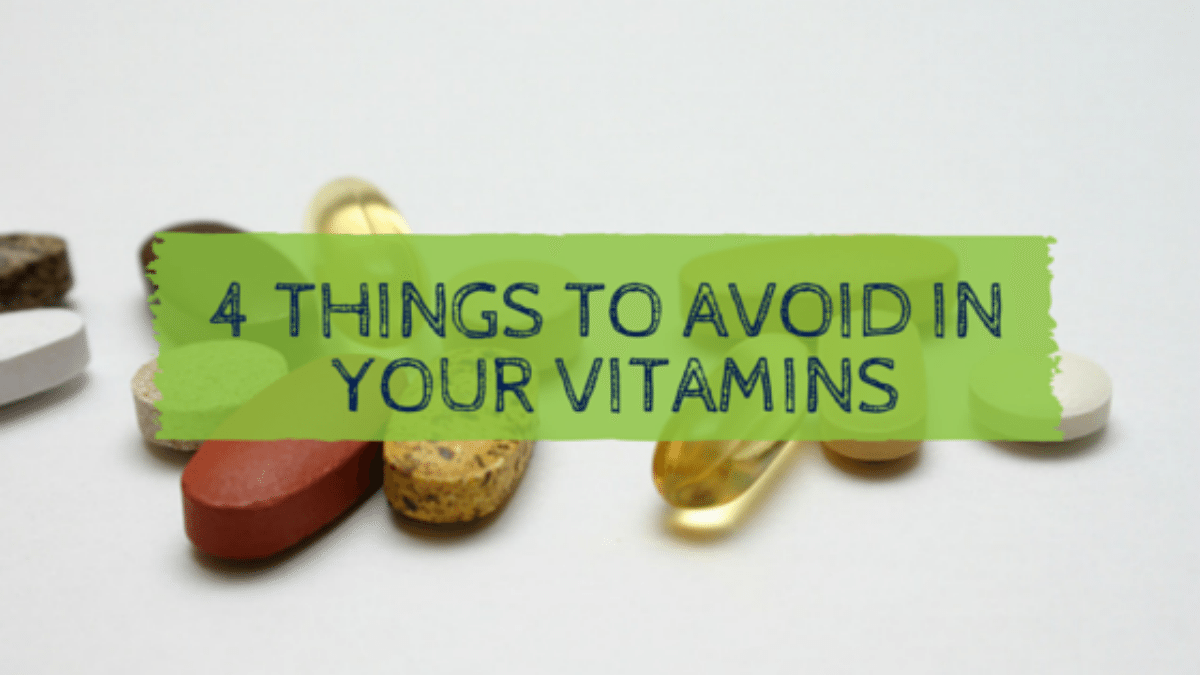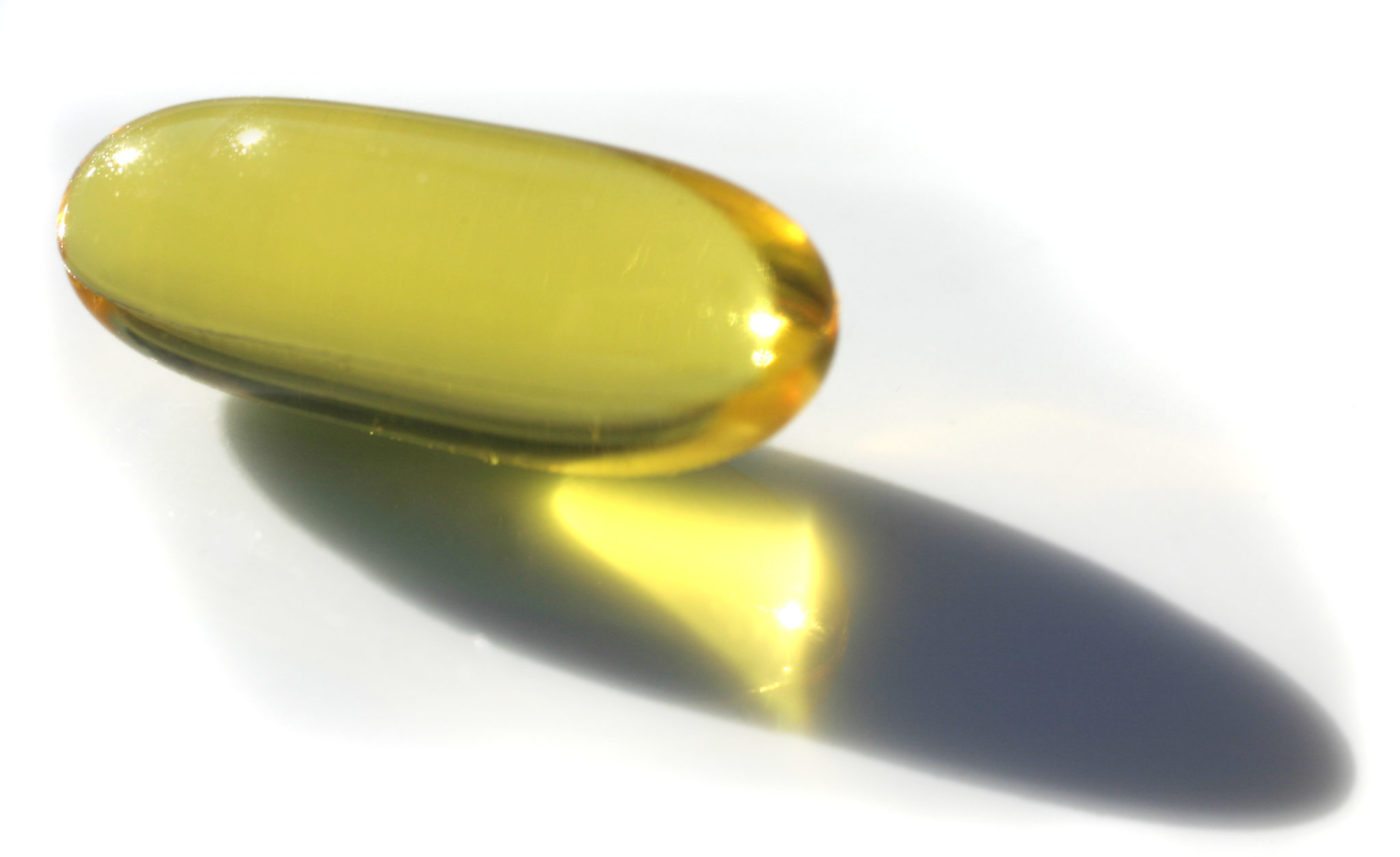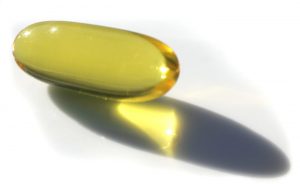Multivitamins are an excellent complement to a well-balanced diet and a great source of critical vitamins, minerals and antioxidants – many of which you’re likely not getting on a regular basis through your diet alone.
But how do you know you’re taking the right one? Quite frankly, there are many vitamins on the market that do not provide the health benefits they claim.
When faced with the decision of choosing a high quality multi, do you know what to avoid?
Here are the top 4 things to avoid in your multivitamin:
1) Avoid Fillers:
It is very common for supplement companies to add fillers to their products. There are numerous reasons why fillers are added to products:
Easier and faster production
Products are more appealing to the eye (colorants)
Easier to swallow (coatings)
Companies save money by using fillers and other cheaper ingredients
Fillers have an impact on your body and health, and it’s not a positive one. By design, our bodies require macronutrients (proteins, carbs, and fats) and micronutrients (vitamins, minerals, and antioxidants). Additives and fillers fall outside of those categories, and your body has no physiological use for them. In addition, fillers can block the absorption of nutrients, which is the main reason why people take supplements to begin with.
If your multi vitamin contains fillers that block the absorption of nutrients, then you’re essentially wasting your money!
3 Common Fillers Used By Supplement Companies That Are Dangerous That You Should Avoid:
Hydrogenated Oils
Artificial Colors
Titanium Dioxide
If you see any of these ingredients in the “other ingredients” section on the back of your vitamins label, it’s time to look for a new one.
2) Avoid “Food Grade” Multivitamins…If your Multivitamin is not pharmaceutical grade, leave it on the shelf:
Most vitamin supplements on the market are produced at “food grade” standards, which have minimal-to-no testing requirements of the actual products and raw ingredients. Only a handful of companies voluntarily produce vitamin supplements at pharmaceutical grade levels, which is a MUCH higher standard.
Pharmaceutical grade manufacturing protocols ensure that what’s listed on the bottle actually exists in the product. It also ensures that the product will break down and absorb in your body within a specific period of time.
Not convinced yet, check out this New York Times Article on food grade supplements sold at traditional retailers like Walgreens, GNC, Target, and Walmart (hint: the supplements that were tested not only didn’t have several ingredients listed on the bottle, but they had other potentially harmful ingredients that were not listed).
When it comes to your health, is it worth taking a chance on food grade supplements? We don’t think so.
3) Avoid Multivitamins that use specific ingredients:
A multivitamin is only as good as the underlying ingredients in the product. This can be one of the most confusing parts when it comes to choosing the right product, as there are a number of forms that various vitamins, minerals, and antioxidants come in.
One example is vitamin E. Vitamin E is primarily baked into multivitamins in two forms – natural vitamin E (d-alpha tocopherol, d-alpha tocopheryl acetate, d-alpha tocopheryl succinate) and synthetic vitamin E (dl-alpha tocopherol, etc.). The “dl” in the equation indicates “synthetic.”
The studies are crystal clear that you want natural vitamin E versus synthetic. However, many companies add the synthetic form as it’s less expensive.
Here are some other ingredients to be weary of:
Vitamin C as ascorbic acid. Studies show that ascorbic acid is more harsh on the body and less bioavailable than mineral ascorbates, which the body can readily absorb. Of course, ascorbic acid is much less expensive than mineral ascorbates.
High levels of vitamin A as retinol, retinyl acetate, and retinyl palmitate. This has less to do with quality and more to do with toxicity. Vitamin A is traditionally delivered as retinol, retinyl acetate, retinyl palmitate. These are “pre-formed” vitamin A, which carry high toxicity risk when consumed at high levels. Beta-carotene is “pro vitamin A,” which means that the body only uses what it requires, which eliminates potential toxicity issues.
4) Avoid Multivitamins that do not provide a breadth of ingredients:
Unfortunately, whether it’s eating habits where people eat the same fruits and vegetables over and over again or do not get enough fruits and vegetables in their diet, the fact remains that it’s impossible to eat your way to the vast spectrum of vitamins, minerals, and antioxidants that are key to long-term health. Put another way, if you’re not getting enough breadth, you may develop a vitamin or mineral deficiency over time, which can increase your risk of illness and disease.
That’s why we call vitamins nutritional “compliments” – they compliment your diet to ensure that you’re getting proper breadth of nutrients.
At minimum, a good multivitamin should contain the following:
Vitamin A
Vitamin C
Vitamin D
Vitamin E
Vitamin K
Thiamin
Riboflavin
Niacin
Vitamin B6
Folate
VitaminB12
Biotin
Calcium
Iodine
Magnesium
Zinc
Selenium
Copper
Maganese
Chromium
Molybdenum
Boron
Vanadium
Silicon
Trace minerals (in chelated forms)
Bioflavanoids
Inositol
N-Aceytl-L-Cysteine
Coenzyme Q10
Alpha-Lipoic Acid
Lutein
Lycopene
The Bottom Line:
Many companies rely on the fact that consumers have no background in nutritional science to sell products of poor quality, but armed with this information, you can begin to evaluate whether you’re buying or taking a product that is beneficial and can promote optimal health benefits.
Lack of fillers, breadth of nutrients, proper forms of nutrients, and manufacturing standards all play a big part in whether a nutritional supplement will provide the benefits you’re seeking or be a dud. Multivitamins are an effective and inexpensive way to fill many known nutrient gaps. Make sure you’re selecting a high quality, pharmaceutical grade multivitamin.
To Changing Healthcare Through Prevention®!
This entry was posted in Healthcare, Lifestyle, Supplements and tagged vitamin c, quality vitamins, pharmaceutical grade supplements, supplements, vitamins, multi vitamins, Vitamin D on June 30, 2015 by David Block.





